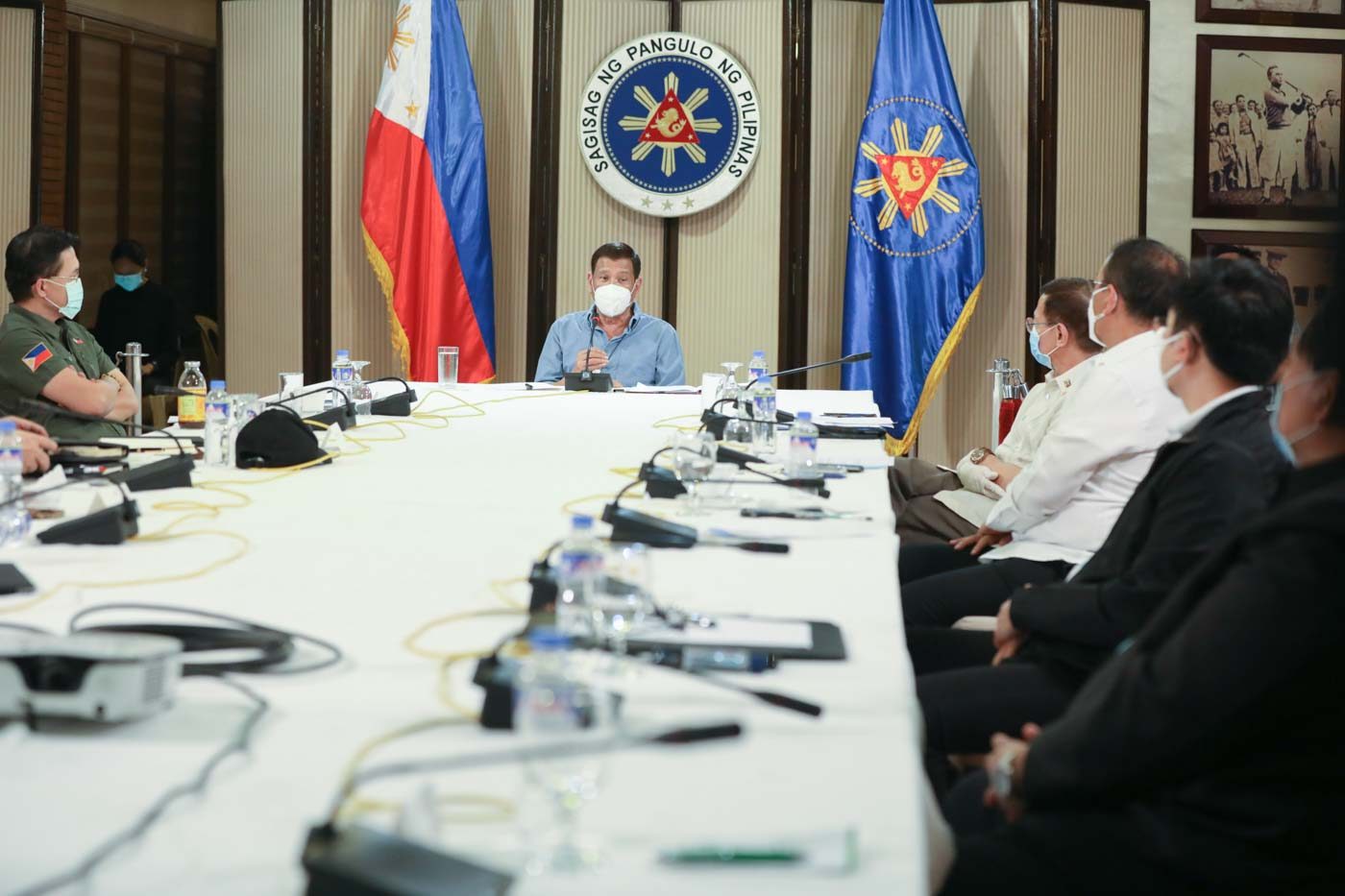SUMMARY
This is AI generated summarization, which may have errors. For context, always refer to the full article.

MANILA, Philippines – As the number of coronavirus cases in the Philippines rises, Malacañang is implementing stricter protocols to secure President Rodrigo Duterte, requiring all persons to undergo rapid coronavirus test before meeting the Chief Executive.
Presidential Security Group (PSG) Commander Colonel Jesus Durante said the enhanced procedures, which were implemented in the last week of March, “exempts nobody.”
Durante said tests would be administered on those going near Duterte and those who would be in the event area where the President was attending as test kit supplies remain limited. This includes testing of high-ranking government officials, PSG troopers, and close-in personnel who always accompany the President.
“Those found positive during the rapid tests will not be allowed to enter the facility. Much more if the concerned party manifests fever and other symptoms related to COVID-19,” Durante said.
Asked how many tests on average were used daily, Durante could not give a number as this depended on “the number of attendees in every event to include the support staff.”
The PSG’s additional health security measures are the latest after it implemented stricter screening measures at the Palace as well as a no-touch policy between Duterte and public, which the President joked about ignoring.
No apologies: Presidential Spokesperson Harry Roque defended Malcañang’s use of rapid test kits, despite its limited quantity and its lower accuracy rates compared to polymerase chain reaction (PCR)-based tests.
Roque added the Palace will make use of every resource available to protect Duterte.
“Let me make this very clear we make no apologies for the fact that we are protecting the life of the President,” Roque told reporters in a briefing on Thursday, April 16.
“Gagamitin po natin lahat ng resources kayang gamitin para protektahan ang Presidente dahil ang Presidente hinalal ng taong bayan para mamuno sa kanila lalong lalo na sa panahong krisis gaya ganito,” he added.
(We will use all resources we can to protect the President because the President was elected by the people to lead them, especially during times of crisis like this one now.)
Aside from these, Roque said Duterte was also separated from visitors through a velvet cordon.
“No cabinet member can actually go next to the President nowadays. Mayroon (There’s a) cordon, you cannot cross the velvet cordon,” Roque told reporters.
Sufficient protection? Rapid tests, however, are known to be less accurate as it can produce false negative or false positive results.
Durante acknowledged this, saying the PSG did not claim that results of rapid tests were “definite and absolute.” Results, he said, should still be confirmed through PCR tests, which the health department held as the gold standard.
The use of rapid tests are likewise an additional step besides health declaration forms Palace visitors are made to fill up. The form includes questions on travel history, exposure to COVID-19 patients and hospital visits, as well as possible signs of symptoms related to the disease.
“Let’s just say we hope the president is more protected using the rapid testing…. The rapid test is additional safeguard but the primary safeguard is no one who suffers form any symptoms and no one who has had any contact with COVID-19 (cases) will be allowed into the Palace,” Roque said.
Earlier in March, the PSG hit ACT-CIS Representative Eric Yap for endangering officials and staff in Malacañang when he failed to disclose important information in the Palace health declaration form. Yap initially tested positive for the virus, then was later said to be negative after a “clerical error” from the Research Institute of Tropical Medicine. – Rappler.com
Add a comment
How does this make you feel?
There are no comments yet. Add your comment to start the conversation.